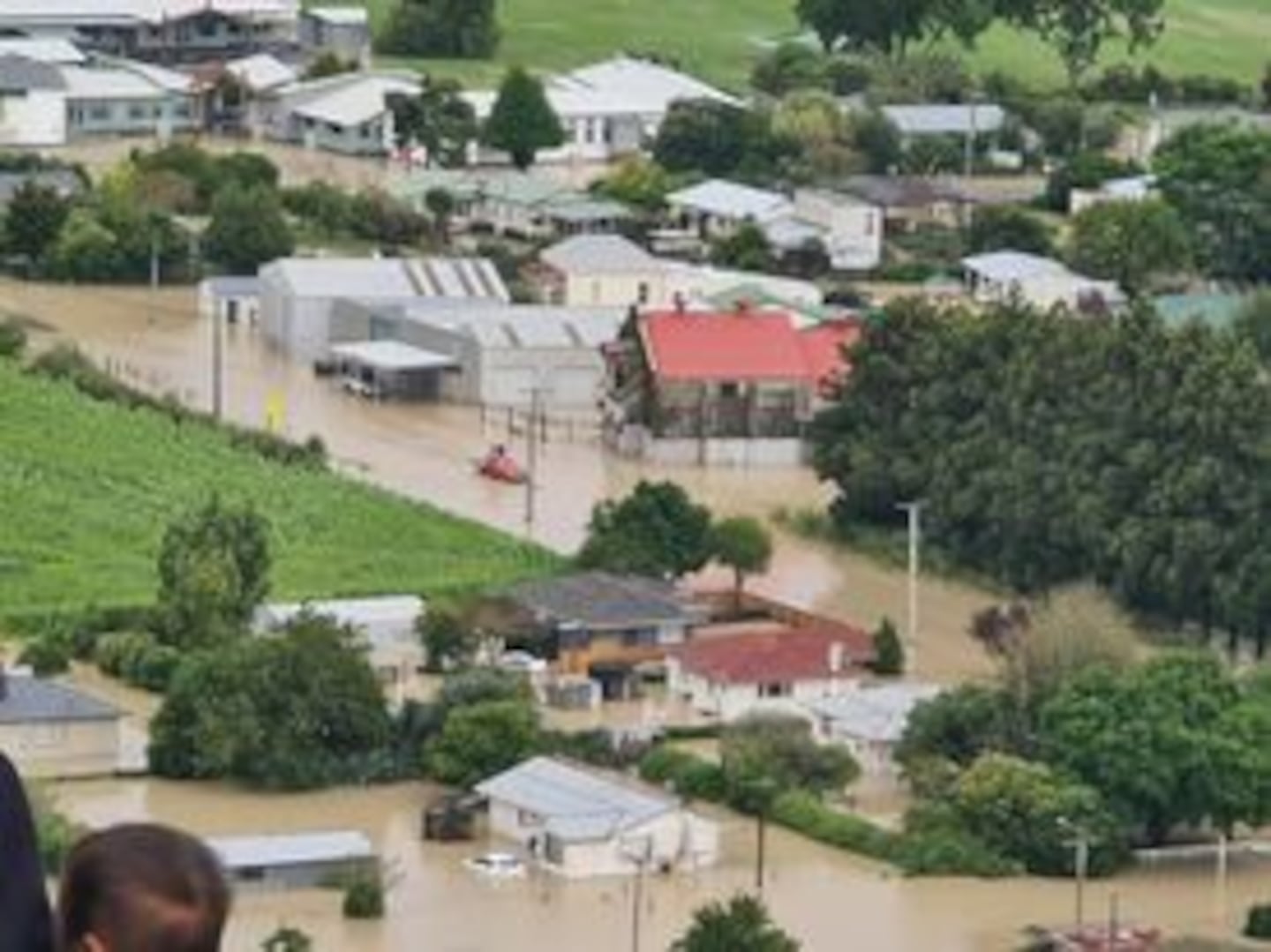Te Aitanga a Māhaki, Ngai Tāmanuhiri, Rongowhakaata, Ngāti Porou and Gisborne District Council have welcomed a $15m injection to help protect whānau and their homes against future flooding in Te Tai Rāwhiti.
The funding, announced by Prime Minister Chris Hipkins earlier this week, will be used to enable around 200 homes across the region that were flooded by water to be raised above the flood level height, with approximately half expected to be in Te Karaka.
“We are truly thankful to this government for the continued support that they have provided to us in our time of need,” Pimia Wehi said on behalf of her Te Karaka Community and Te Aitanga a Māhaki.
“We will never forget this. This funding will go a long way towards giving my people peace of mind.”
The Labour candidate for Ikaroa-Rāwhiti, Cushla Tangaere-Manuel, was at the announcement on Wednesday with Hipkins. She said during a Whakaata Māori debate with incumbent MP and Te Pāti Māori candidate Meka Whaitiri that the latest cash injection shows Labour still cares about the communities hardest hit by Cyclone Gabrielle in February.
“And we haven’t stopped investing. It was great to be in Te Karaka yesterday to announce more pūtea for them to recover. The point is, whānau, while we have made investments along the way, we’re committed to seeing our whānau through,” she said.

However, Whaitiri, a former Labour Party minister who at one stage was the lead minister of Cyclone recovery in Hawke’s Bay, responded by saying that money came about as a result of her advocacy before she left the party but the length of time it has taken to reach the community was one reason she switched allegiances in June.
“What we’re talking about here is Māori solutions like how our marae have been able to stand up. The communities that were devastated from Mangatuna to Te Karaka to Tāngoio, they have stood up. There are Māori solutions to emergencies that we aren’t investing in.”
Mayor Rehette Stoltz says being able to raise homes means this will add considerable resilience for those houses in affected areas.
“I am heartened to hear this news, especially because it will help the Te Karaka community and others across the region who were hardest hit by Cyclone Gabrielle from extensive flooding.
“We’d like to acknowledge Te Aitanga a Māhaki for their hard work in Te Karaka, and all the hapū and iwi leads who have supported whānau right across the region on the road to recovery.
“We know many are still not able to move back to their homes and have been in temporary accommodation for more than seven months.
“It will make a huge difference to many in our community.”
“Immediate and tangible solution’
Hipkins said raising homes above flood levels would go a long way to helping people return to their homes as quickly as possible.
While broader and more complex resilience measures may take a bit longer, raising houses provides an immediate and tangible solution that significantly reduces risk.
.“One of the outcomes of the initiative is its positive impact on the affected Tai Rāwhiti communities. Elevated houses enable residents to return to their homes, allowing individuals to recover emotionally and materially in a more stable environment.
“There is more work to do in cyclone and flood-affected regions and the government continues to support those regions as they rebuild and recover.”
The latest injection comes out of the $100m funding package announced in this year’s budget.
Te Aitanga a Māhaki through Toitū Tairāwhiti Housing and the council will work through agreement details for the Resilient Homes initiative along with the specific planning for eligible properties.
A further $1.2m was also granted to enhance flood monitoring telemetry and communication systems to improve real-time data that can be used for warnings and analysis of flood modelling. Installation is planned to be completed over the next 12 – 18 months.




